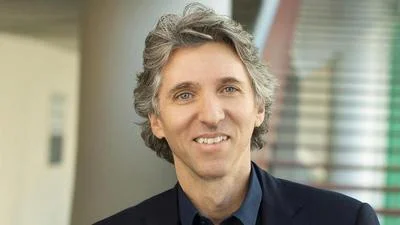Rabbi Dr. Ari Berman, President and Rosh Yeshiva | Yeshiva University
Rabbi Dr. Ari Berman, President and Rosh Yeshiva | Yeshiva University
During one of Anthony Pagan’s clinical rounds at St. John’s Episcopal Hospital in his last semester in the Katz School's M.S. in Physician Assistant Studies, he was summoned by the attending physician to perform an ultrasound-guided intravenous procedure on an older man with a life-threatening bowel obstruction.
After an exchange of pleasantries with the patient, Pagan explained the steps that he’d be taking during the procedure but first had to palpate an inaccessible vein before inserting a needle, assuring him that it wouldn’t be too painful. The patient nodded and then asked Pagan a question that he gets often given his age: Had he ever performed the procedure?
“I told him that I’d seen quite a few, but I couldn’t lie,” said Pagan. “I told him that it’d be my first one but that we were going to have a doctor present in the room guiding me through the entire procedure to make sure I was doing everything just right. He took that pretty well."
Pagan gathered the necessary equipment, including the ultrasound machine, ultrasound probe, a sterile IV catheter kit and IV tubing. When he identified a suitable vein, he applied a tourniquet and sterilized the area, holding the ultrasound probe in one hand to keep an eye on the vein while using the other hand to insert the IV catheter.
“I was a bundle of excitement and nerves,” said Pagan. “I was like, ‘Alright, alright, I can do this.’”
He inserted the catheter needle into the vein at a shallow angle while focusing on the needle tip on the snowy ultrasound screen, gently pushing the needle forward but not too quickly so as not to accidentally poke through the other side of the vein. When he correctly positioned the needle, blood started to flow back through it and into the IV catheter hub. He moved further into it into place and removed it from there.
“The ultrasound probe looked like an icicle in darkness,” said Pagan. “You’re not looking at your hands; you’re looking at your screen while you’re doing it.”
Pagan credits Professor Abraham Oxilas particularly for instilling confidence and tenacity into his approach to patient care. After practicing in other specialties emergency medicine is where he prefers because "it’s controlled chaos."
“You never really know what you’re getting into,” he said.
At end of his clinical rotation chief attending physician asked what after graduation? When emergency medicine came up job offered spot starting June.






 Alerts Sign-up
Alerts Sign-up